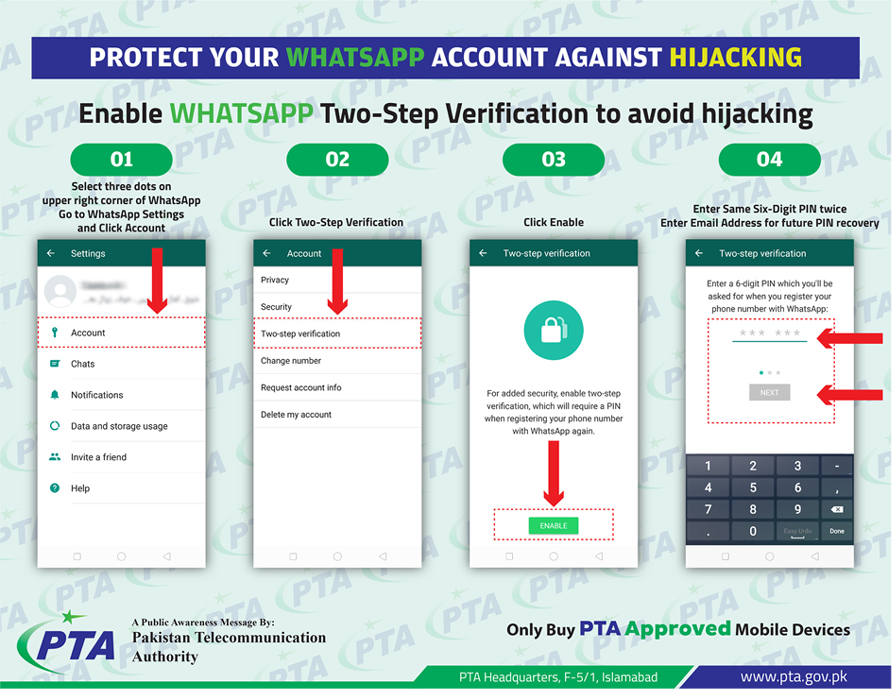If there’s one messaging app that scammers can exploit with ease to steal your money and identity, it’s WhatsApp. With over two billion monthly active users, WhatsApp has become a breeding ground for scammers seeking to ensnare unsuspecting victims. In 2022 alone, scammers inundated text messaging apps like WhatsApp with a staggering 66 billion spam texts. Alarming projections suggest that users could potentially lose a staggering $28 billion to text message scams by the end of 2023.
Amidst this rising tide of digital deception, it’s imperative to understand the various WhatsApp scams circulating today, how they operate, and most importantly, how to shield yourself from falling prey to their deceitful tactics.
The Expansive Landscape of WhatsApp Scams
From impersonation schemes to crypto romance scams, scammers have perfected a myriad of techniques to exploit WhatsApp users’ vulnerabilities. Let’s delve into some of the most prevalent scams and uncover strategies to thwart them.

1. Mom and Dad Impersonation Schemes
One of the classic yet highly effective scams involves scammers impersonating the victim’s child and appealing for money. This emotionally charged ploy preys on parental instincts, leaving unwitting parents susceptible to transferring funds into the scammer’s account. To protect yourself, verify the new number through alternative means before making any transfers.
2. Friend or Loved One in Need Requests
Scammers adopt the persona of friends or family members to craft convincing tales of urgency, coercing victims into sharing personal information or money. Combat this by directly contacting the person in question through an independent channel to verify their claims.
3. Verification Code Scams
By luring victims into sharing verification codes, scammers can take control of WhatsApp accounts. If you receive unsolicited verification codes, promptly delete them, block dubious users, and enable two-step verification.
4. WhatsApp Gold Scam
Beware of invitations to upgrade to “WhatsApp Gold,” an alluring yet fictitious version of the app. Such scams often lead to malware installation, compromising your device and personal data. Delete any messages promoting WhatsApp Gold immediately.
5. Bogus Gift Cards and Surveys
Scammers pose as reputable companies, enticing users with free gift cards in exchange for personal information. Verify such offers through official channels and refrain from clicking on unfamiliar links.
6. Lottery Scams
Impersonating legitimate lotteries, scammers promise cash prizes for a fee. Recognize that genuine lottery winnings don’t require fees and remain cautious of unsolicited offers.
7. Crypto Romance Scams
Love-seeking scammers transition from dating apps to WhatsApp, gaining trust before persuading victims to invest in cryptocurrencies. Remember that crypto investments carry risks, and thoroughly verify anyone you meet online.

Guarding Against WhatsApp Scams
Defending yourself against WhatsApp scams requires vigilance and caution:
- Verify Claims: Independently authenticate claims made by unknown numbers, especially those involving money or personal information.
- Contact: Communicate directly with friends or family members before acting on urgent requests for money.
- Suspicious Links: Refrain from clicking on links from unknown sources, as they could lead to malware-infected websites.
- Two-Step Verification: Activate WhatsApp’s two-step verification to enhance account security.
- Check Official Sources: Cross-reference offers and messages from reputable companies through their official websites and social media channels.
- Critical Thinking: Maintain a healthy skepticism towards offers that seem too good to be true, especially those related to financial gains.
- Educate: Share awareness about these scams with friends and family to collectively combat their effectiveness.
In a digital age rife with scams, protecting oneself demands heightened awareness and skepticism. By staying informed about the latest WhatsApp scams and adopting these preventive measures, you can safeguard your money, personal information, and identity from the clutches of online scammers. Remember, caution is your most potent weapon against their cunning tactics.






































